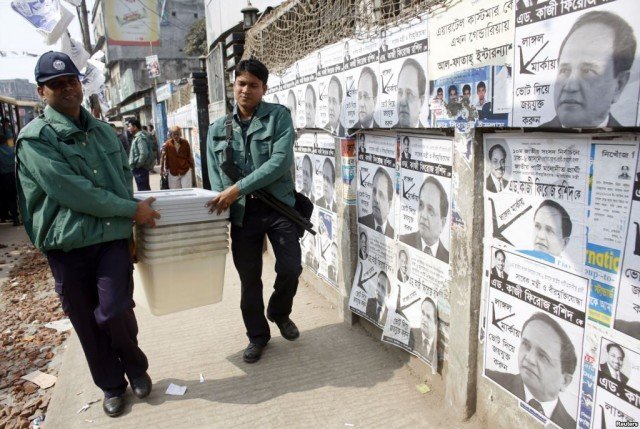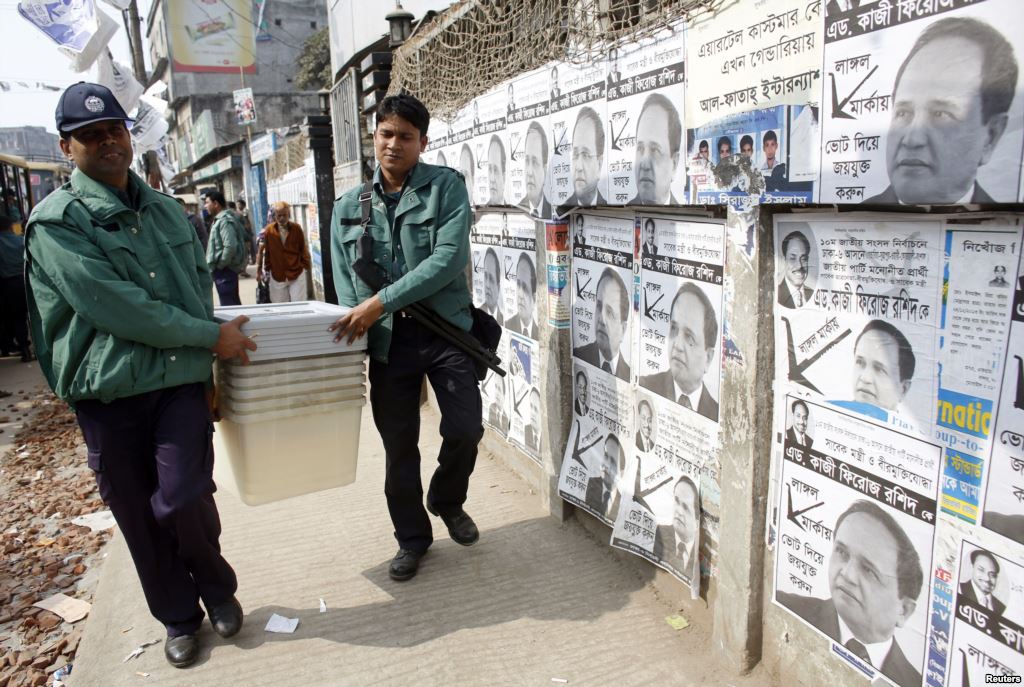Bangladeshi ruling party Awami League has won a violent general election whose outcome was never in doubt, after a boycott by the main opposition party.
Fewer than half the 300 parliamentary seats were contested – reports say the Awami League has a two-thirds majority.
At least 18 people died during Sunday’s vote and dozens more in the run-up. Clashes on Monday killed another three.
Voter turnout appears to have been particularly poor, with just over 20% reportedly taking part.
More than 70% voted in the 2008 parliamentary elections, with officials saying the fear of violence and the boycott kept many away this time.
PM Sheikh Hasina was swift to claim her party had won fairly.
“The people have cast their votes spontaneously, upheld the value of democracy and dumped terrorism. We will form our government,” Sheikh Hasina told a news conference.
The opposition Bangladesh Nationalist Party (BNP) led a nationwide 48-hour strike beginning on Saturday after its leader Khaleda Zia urged supporters to “completely boycott” what she called a “scandalous farce” of an election.

Sheikh Hasina had rejected the opposition’s demands for her to step down and set up a neutral government to oversee the poll.
The BNP has demanded that results be declared null and void and has called for another 48-hour general strike to begin on Monday.
Widespread violence erupted across the country on Sunday. Scores of polling stations – many of them schools – were torched, and violent clashes broke out between opposition activists and police.
With most votes counted, the Awami League won 105 of the 147 contested seats, with allied parties or independent candidates taking the remaining 34, reports said.
Repolling will take place in eight constituencies.
The ruling party also held 127 seats that were unopposed, giving it 232 seats in all. A final result is expected later on Monday.
The opposition strike is only the latest in a string of protests by the BNP and its allies – including the Islamist Jamaat-e-Islami party – that has seen a blockade of roads, railways and waterways and the closure of shops, schools and offices.
In the run-up to the polls, scores of opposition supporters died in police shootings and dozens of commuters were burnt to death by protesters throwing petrol bombs at strike-defying buses.
All elections since 1991 have been held under a neutral caretaker administration to ensure that voting is not fixed.
But the Awami League abolished the caretaker system in 2010, arguing that it was no longer necessary.
The government has insisted the BNP should take part in the polls within the existing constitutional framework.
Sheikh Hasina and Khaleda Zia – who are bitter political enemies – have alternated from government to opposition for most of the past two decades.
[youtube kMakkXLjy4w 650]
